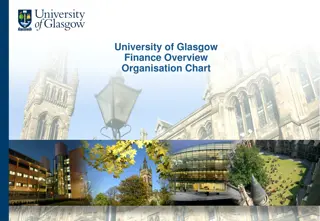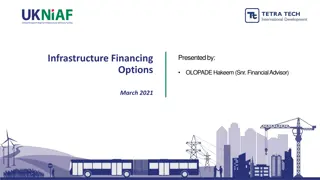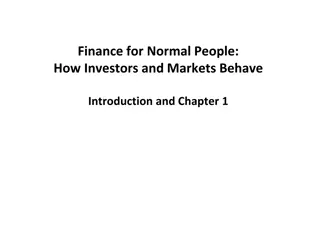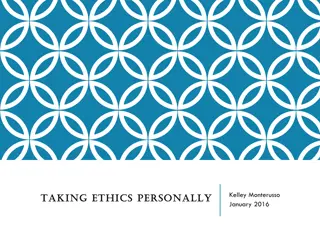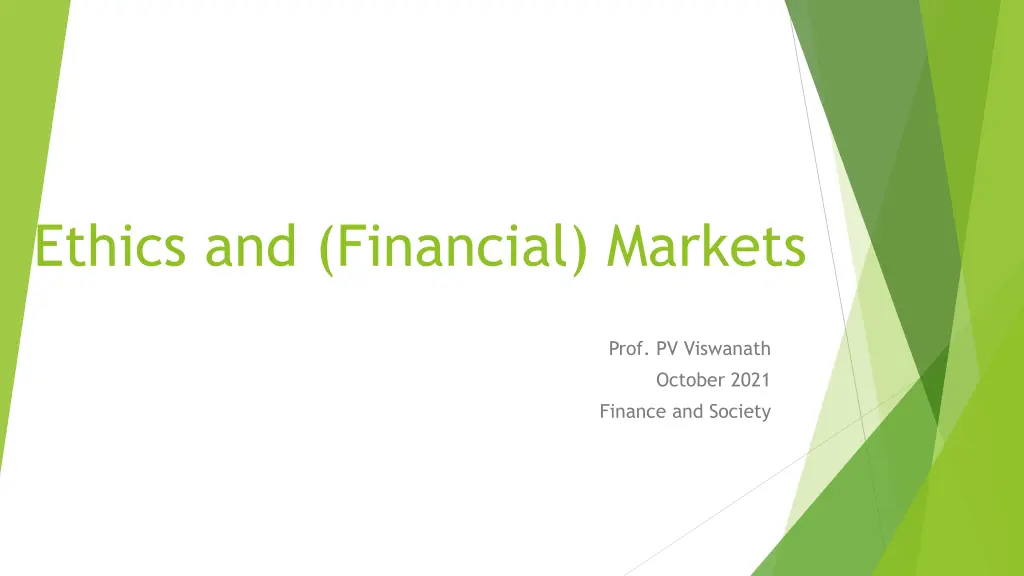
Markets and Society: Rethinking Value and Empathy
Explore the impact of relying on markets as arbiters of value, the importance of empathy, fairness, and justice in economic decision-making, and the role of market mechanisms in achieving the public good. Delve into discussions about labor, social esteem, and the devaluation of ordinary people's contributions to society.
Download Presentation

Please find below an Image/Link to download the presentation.
The content on the website is provided AS IS for your information and personal use only. It may not be sold, licensed, or shared on other websites without obtaining consent from the author. If you encounter any issues during the download, it is possible that the publisher has removed the file from their server.
You are allowed to download the files provided on this website for personal or commercial use, subject to the condition that they are used lawfully. All files are the property of their respective owners.
The content on the website is provided AS IS for your information and personal use only. It may not be sold, licensed, or shared on other websites without obtaining consent from the author.
E N D
Presentation Transcript
Ethics and (Financial) Markets Prof. PV Viswanath October 2021 Finance and Society
Alternatives to homo economicus Economics textbooks present economic agents as interested in maximizing utility of consumption. They are presented as people who care about money, wages and jobs and the consumption possibilities that come from them. Even when other contributors to utility are considered in theory, they are effectively ignored by choices of how to measure output and general welfare. Individuals, however, value other things, such as social esteem and fairness. Fairness is also important to people. Cf. Ultimatum games (https://www.sciencedirect.com/topics/neuroscience/ultimatum-game) In ultimatum experiments two people are randomly and anonymously matched, one as proposer and one as responder, and told they will play a game exactly one time. The proposer is endowed with an amount of money, and suggests a division of that amount between herself and her responder. The responder observes the suggestion and then decides whether to accept or reject. If the division is accepted then both earn the amount implied by the proposer s suggestion. If rejected, then both the proposer and responder earn nothing for the experiment. The key result of ultimatum experiments is that most proposers offer between 40% and 50% of the endowed amount, and that this split is almost always accepted by responders.
Material to consider adding Labour seen as a commodity Karl Polanyi Money, labor and land as fictitious commodities Talk about organ donations..
Reliance on markets as arbiters of value leads to discord and lack of empathy However, even if most people place emphasis on fairness and justice, empathy towards others is not automatic, especially if the interests of different aggrieved parties conflict. People are less likely to recognize discrimination against others, if they themselves are not in a comfortable place and also feel victimized. Rapid changes in the economic and social environment make people anxious, conservative, unwilling to change and more likely to lash out against immigrants, free trade and governing elites. What is missing, according to Michael Sandel, is an equality of condition, an acceptance of the basic value of all human lives, a granting of social esteem to human beings for their unique contributions to society. What we have, instead, is a reliance on markets as arbiters of the value of human beings. When markets outcomes are used by society to value individuals, what we have is a devaluation of ordinary people s contributions to society, which is reflected, e.g. in the ratio of manager/worker compensation. This leads people to see themselves as aggrieved parties and to attack others even if those others are not the cause of their problems.
Markets as the go-to solution for public good questions There is a commonly-held belief that market mechanisms are the primary instruments for achieving the public good particularly in business schools and among finance professionals and academics. Cf. Zingales s responses to Anand Giridhardas (https://www.capitalisnt.com/episodes/when-the-profit- motive-kills-with-anand-giridharadas) (Transcript of episode) This is problematic, according to Sandel, because it drains public discourse of substantive moral argument and treats ideologically contestable questions as if they were matters of economic efficiency, i.e. the province of experts. This creates a sense of disempowerment. Access to financial markets often depends on pre-existing wealth and connections; consequently, existing inequalities lead to even greater inequalities of wealth and income. There is no self-correcting equilibrium because rules for the operation of financial and other markets are themselves affected by lobbying of wealthy interested parties. Two outcomes of the emphasis and reliance on markets are globalization and deregulation.
Globalization and Deregulation The doctrine of comparative advantage and free trade doctrines are used to promote globalization. However, this tends to devalue national identities and allegiances. Decisions about what kind of a society they want to live in decisions which can have more than one answer can only be made by people who feel part of a community. When these decisions are not made at the grass-root level, people feel that their preferences are not taken into account. Local and national identities are important because they also help solve the free- rider problem; it allows individuals to internalize costs and benefits. This is why people are willing to volunteer in church organizations and other small non-profit groups. Deregulation is another market-based solution. While it is possible for regulators to be co-opted by industry (Stigler), this is not always true. Excessive deregulation leaves out any possibility of controlling the actions of corporate actors and leads to outcomes that favor corporate actors and those who have stakes in the corporate sector. What about redistribution of wealth? Perhaps market-reliant policies are good in terms of maximizing output, with redistribution then dealing with concerns of equity. Unfortunately, this can be problematic.
Pareto-optimality and the political economy of redistribution Economists use the concept of Pareto-optimality to judge policies. A situation or equilibrium is said to be Pareto-optimal or Pareto efficiency if no individual can be made better off without making at least one individual worse off. The assumption is that any redistribution that society might deem necessary can be made without consideration of where economic policies initially lead it. But as we have seen, if the initial situation benefits one group, political economy tends to prevent redistribution away from that group. Hence both globalization and deregulation led to devastating consequences for many families that had invested in the existing system. Both movements were ultimately good for consumers, but not necessarily for workers. Individuals see their own self-worth in terms of the work that they engage in, their professions, their jobs. When these are devalued, their sense of self- esteem is devalued. This is why a lot of people refuse to take handouts or are willing to take lower-paying jobs that provide greater self-esteem.
What about a level playing field as a solution? Globalization and deregulation have created greater inequality in pay and in wealth. Politicians of both parties have responded by calling for greater equality of opportunity, retraining workers and removing barriers of race, ethnicity and gender. But simply removing barriers does not automatically create a level playing field. In today s economy, it is not easy to rise from a position of low wealth. Mobility in the US is low and is related to factors that are not easy to change. Access to education has become freer, but also more dependent on market factors. This means that the already wealthy have a better shot at becoming even wealthier. Those possessing wealth rich have had opportunities to change the rules of the game. Meritocracy is proposed as a solution, but there are several reasons why it may not suffice, and why it may not even be a good solution.
Meritocracy The idea underlying meritocracy is that those who truly are deserving in the sense of being able to produce, should get the highest rewards. The notion that people should rise in society and be rewarded, based on their talents, not on their birth or the advantages of privilege. There is an implicit notion that talents are controllable, that people through their actions determine talent, as if it were something akin to effort. However, talents are not the result of individual efforts. If this is not recognized, then those who've landed on top have come to believe that their success is their own doing, the measure of their merit. And, by implication, that those who struggle, those who've been left behind, have no one to blame but themselves. In fact, however, talent may well be exogenous and random. Worse, access to wealth may determine the development of skills valued by society. It is well documented, for example, that there is a close relationship between social class and SAT scores (https://www.cnbc.com/2019/10/03/rich-students-get-better-sat-scores-heres-why.html). In addition, do we necessarily want a society where exogenously-determined talent dooms anybody who has not won the lottery and hence cannot rise? When we are looking for solutions to technical questions, we may well want the most talented person to work on the problem. But the solutions to the technical problems cannot be severed from the distributional implications.
Problems with Meritocracy An implicit notion behind meritocracy is that it allows production to be maximized. However, the measurement of productivity is not necessarily objective. In the consumer economy, those who have wealth determine consumption, and they therefore determine production. Measurement of GDP, for example. An example: non-market wealth production (usually by women) is not counted. In fact, any non-market production is excluded. If I work in my backyard, it is excluded, if I raise my children to be productive, it is excluded! Second, are their differences in endowments that allow particular individuals and particular groups to produce better than others? If so, why should they be allowed to be better rewarded? Part of production comes from incentives to use endowments effectively; hence detaching rewards from output, as occurred e.g. in the Soviet Union will fail. However, how closely do you need rewards to be tied to output in order to get the benefits of proper incentives? Furthermore, it may make sense to provide economic rewards to those who have the ability to maximize production in order to provide them with incentives. Compensation can be structured so as to provide incentives at the margin without necessarily increasing overall rewards and access to consumption. For example, a tax on financial transactions might well be indicated, given the excess of financial activity in today s economy.
Economic Rewards and Moral Standing In addition, if those abilities are due to endowments, there should be no connection between those economic rewards and moral standing. This is reflected in the mistaken notion that you can make it if you try. However, this is not always true in today s economy/society. There is congratulation for the winners, but denigration for the losers. The first problem is injustice, but the second problem which is more insidious is humiliation. This can lead to questions of self-worth. Meritocracy can set college degrees as the basis for social esteem, which is problematic given the difficulty of access to education, of course; but also given that a college degree can be the outcome of endowments, not under the individual s control. According to Sandel, This is a moment to begin a debate about the dignity of work; about the rewards of work both in terms of pay but also in terms of esteem. We now realize how deeply dependent we are, not just on doctors and nurses, but delivery workers, grocery store clerks, warehouse workers, lorry drivers, home healthcare providers and childcare workers, many of them in the gig economy. We call them key workers and yet these are oftentimes not the best paid or the most honored workers. But how do we get to this moral recognition of those whose contributions are crucial to society? A recent NY Times article (https://www.nytimes.com/2021/10/09/us/politics/child- care-costs-wages-legislation.html) notes that a teacher in Greensboro, SC, the teachers earns so little $10 an hour that she spends half her time working at Starbucks, where the pay is 50 percent higher and includes health insurance!
Merit and Moral Judgement Historically, according to Sandel, merit included moral and civic virtue, but the current understanding of meritocracy severs the link between merit and moral judgement. In the domain of the economy, meritocracy simply assumes that the common good is defined by GDP, and that the value of people s contributions consists in the market value of the goods or services they sell. But market value simply reflects what people want at a certain point in time, relative to the scarcity of supply. In the domain of government, it assumes that merit means technocratic expertise. The role of economists as policy advisors is growing, but these economists are often narrowly technologically literate and fail to see the connection with moral judgments. Technological expertise has brought great riches, but its value has not always been linear, and hasn t always benefited all parts of society to similar extents. For example, inequality has increased since the mid-sixties and this can call into question the fundamental basis on which our democracy rests.
Meritocracy and Aristocracy Everybody would agree that an aristocracy is unjust because it consigns people to the class of their birth. A meritocracy, by contrast, enables people to improve their condition by exercising their talent and ingenuity. On the other hand, if one were poor in a meritocracy, one would have low self- esteem and low social standing. So if one had to be poor, one might prefer to be poor in an aristocracy! This would seem to be the ultimate denunciation of meritocracy. (Others, though, have questioned the detachment of social standing from wealth in an aristocracy. According to them, both have their problems.) The problems with supposed meritocracies is that it is subverted by the wealthy and powerful, who have rigged the system to perpetuate their privilege. The professional classes have figured out how to pass their advantages on to their children, converting the meritocracy into a hereditary aristocracy. But even if the rules were not subverted, a meritocracy would not remove inequality. A meritocracy is not a remedy for inequality; it is a justification of inequality. First, talents are not earned, they are arbitrarily given (if not actually socially engineered); second it s a matter of luck that society happens to reward certain talents and not others. So there is a double lottery at play here. Our merit is not necessarily our own doing.
Free-market and Egalitarian liberalism According to Hayek, there are advantages to markets. He agreed that value produced is not a measure of merit. But he rejected meddling with the rewards of the market system because he was worried that it would lead to loss of freedom. We have seen, however, the rules of the market are not exogenously given, they are the outcome of a political economic process. Other philosophers, such as Rawls, agree that market outcomes result from this double lottery. Hence they argue for welfare-state liberalism or egalitarian liberalism. Rawls argues that there should be redistribution, based on rules determining what is just. Beyond that, individuals would be free to enjoy their earnings/wealth. For Rawls, freedom consists in pursuing one s own conception of the good life while respecting the right of others to do the same. (Sandel, however, emphasizes the importance of a shared conception of the good.) In practice, reliance on a market system that prizes outcomes does not remove the psychological tendency to equate wealth with merit. And this means that people who are poor under either system would suffer low self-esteem. Questions of honor and recognition cannot be neatly separated from questions of distributive justice. Egalitarian liberalism bases our obligation to help on how people came to be needy in the first place, not on solidarity and compassion, which are better foundations for a sense of obligation. Liberals who depend on the welfare state are usually led to a rhetoric of victimhood, which doesn t make the poor person feel any better! Hence Sandel rejects both these ideologies.
The Just and the Good According to an early 20thcentury U of Chicago economist, Frank Knight: An economic system should be judged less by its efficiency in satisfying consumer demand than by the wants which it generates [and] the type of character which it forms in its people Ethically, the creation of the right wants is more important than want-satisfaction. According to Sandel, we cannot divorce the economic/financial system from considerations of what is good, not only what is just. Equality of opportunity is a remedial principle it is a principle of justice not an adequate ideal for a good society. A good society needs a positive foundation this is a shared ideal of what is good.
What is the good? And how do we get to it? All societies have aspects that moderate individualistic tendencies. Feudal societies were not kind to villeins, and it often came with demeaning assumptions about serfs. However, even in such societies, there were certain values such as Noblesse oblige, that were espoused by the aristocrats. The Jewish Bible emphasizes honoring elders, as do most traditional societies. Consider what happens to immigrant families that move from traditional societies to market-based societies. The children internalize the values of the new society and look down upon the elders. This leads to all sorts of social problems (Ethiopians and Bnei Menashe in Israel; similarly Cambodians/Somalis in the US -- https://scholarworks.smith.edu/cgi/viewcontent.cgi?article=1585&context=theses). The parable of the prodigal son in the New Testament emphasizes helping people even when they have made bad choices. None of these aspects have to do with justice, per se. They are foundations of what many societies see as good, a priori desirable. Societies need to decide for themselves what they hold dear and to strive towards that. This requires the cultivation of social bonds and civic attachments which will promote a democratic society. (Cf. Raghuram Rajan in this The Third Pillar -- https://www.ft.com/content/c2a93c66-fe9a-40f4-8380-3f157ff7a7d3)
The Good There must be a radical re-evaluation of how contributions to the common good are judged and rewarded. Consumerism, i.e. the valuation of consumption for its own sake has not been an over-riding value. There needs to be a public discussion about this. According to Sandel, there needs to be a redistribution of esteem as well as money, and more of it needs to go to the millions doing work that does not require a college degree. There needs to be a better appreciation of the contribution to the common good made by people who haven t been to university.
Equality of Condition What we need is a good society, one that is characterized by equality of condition, one where citizens come together in common spaces to deliberate about the purposes and ends worthy of the political community. An equality of condition is an appreciation of the contributions of citizens of all walks of life so that they can hold their heads up high and to consider themselves participants in a common venture. Equality of condition is characterized by a sense of confidence, such that all people whether they work in factories, on farms or in towns all have the kind of education that can enable them to stand tall, and not to observe any sense of hierarchy with regard to their supposedly betters. R. H. Tawney in Equality (1931): Opportunities to rise are not a substitute for a large measure of practical equality, nor do they make immaterial the existence of sharp disparities of income and social condition. Social well-being depends upon cohesion and solidarity. It implies the existence, not merely of opportunities to ascend, but of a high level of general culture, and a strong sense of common interests. Individual happiness does not only require that men should be free to rise to new positions of comfort and distinction; it also requires that they should be able to lead a life of dignity and culture, whether they rise or not.
An alternative to a shared vision of the Common Good Sophia Moreau (American Journal of Law and Equality, Vol. 1, 2021) suggests an alternative to Sandel s proposal to develop through dialog, a shared vision of the common good https://direct.mit.edu/ajle/article/doi/10.1162/ajle_a_00011/107210/WHAT -S-NEEDED-FOR-EQUALITY-OF-CONDITION-Comment-on She puts forward two basic principles that arguably ground democratic societies: (i) every person s life has some positive value (rather than no value), and (ii) no person s life is more valuable than anyone else s. Certain obligations follow from these basic principles. If every person s life is just as valuable as every other person s life, then each of us has an obligation to change those social and political institutions that perpetuate social hierarchies and place others below us in social status. If every person s life has some positive value, then each of us has an obligation to do what we can, given the institutions that we have the power to influence, to ensure that everyone has the conditions necessary for a dignified life.




